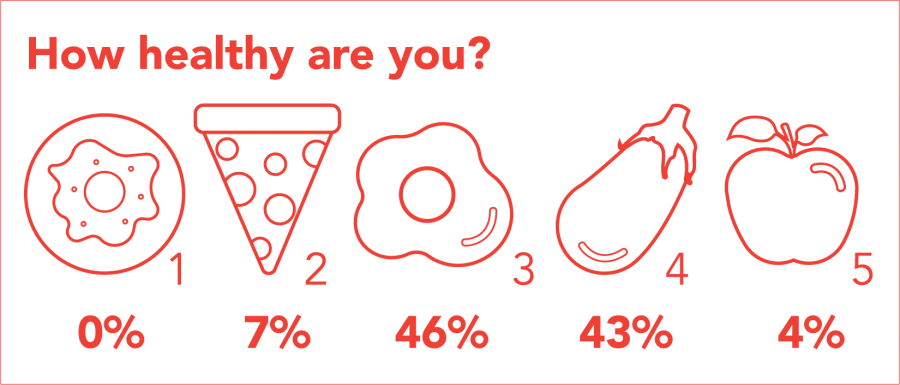Adults, ads and availability affect teen eating
Survey of 211 students on September 8, 2016.
September 17, 2016
Teens eating habits are not solely built on the basis of health; trends, marketing, convenience and mood are just a few of the factors that affect what young people put in their bodies.
On television alone, young people view more than 40,000 advertisements a year, according to American Academy of Pediatrics. Many of these commercials are for less-than-healthy food options, but companies hire professionals to make their products look very appealing.
These ads harp on one of their main selling points: convenience. Kids will eat what is easy and available, especially with their busy schedule of school, activities and jobs, according to WebMD. Even if the food is unhealthy, it offers quick hunger fixes via microwave or fast food restaurants.
Junior Shannon Damiano of Spring Lake Heights agrees convenience is a big attraction. “I might eat healthier if I had more time and money,” Damiano said.
Hormones and stress levels also greatly affect what teenagers eat. Around 2.8 million American children will experience depression, a stimulator of over or under eating, within the year, according to the National Institute of Mental Health. More common symptoms, such as sadness and boredom also can prompt teens to overeat or make unhealthy choices.
Parents may also negatively affect teens’ diets. Too much pressure from parents to eat more or less of certain foods can lead to a higher risk of obesity, according to a study published in Time. Additionally, parent-monitored, scheduled meals can cause the inability for teens and children to decide when their bodies are hungry or full.
However, sometimes structure brings success. Damiano said her mother does the grocery shopping and is the main influence of her diet.
“If anything, she helps me eat healthier,” Damiano said.
Dozens of factors, ranging from media to friends to time, can get in the way — for better or worse — of teens making uncorrupted decisions with health and happiness on the mind.






